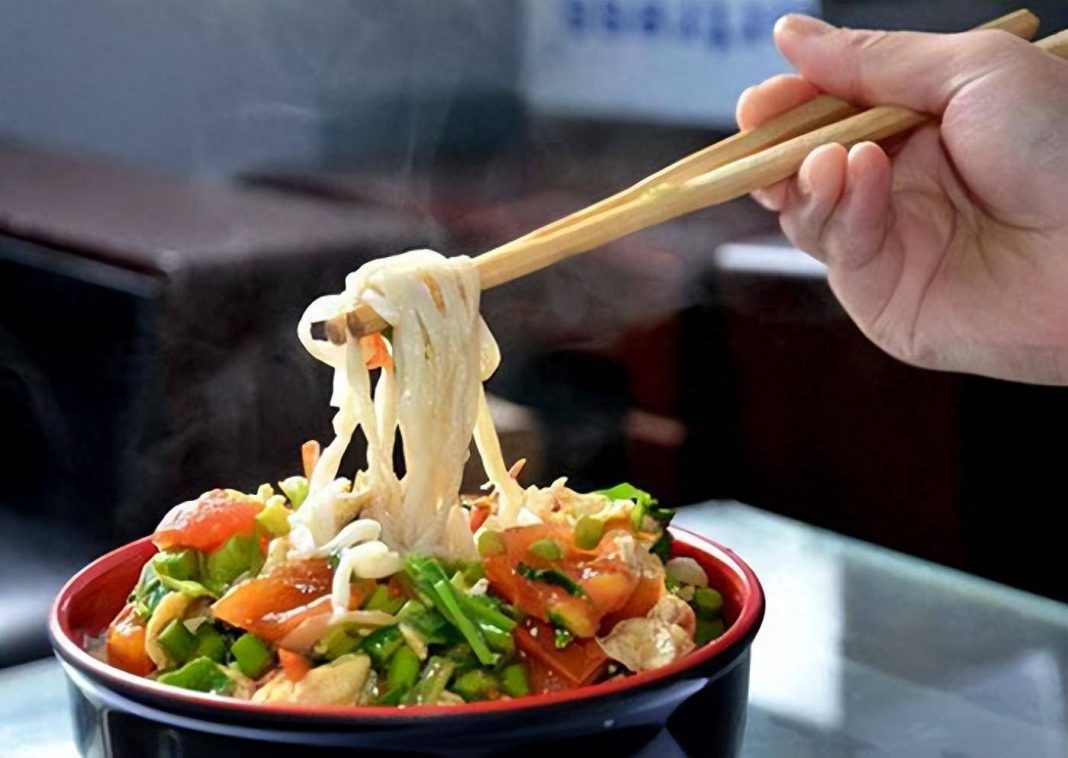Before reading this article, we invite you to click “Follow”. This will not only facilitate your discussions and sharing, but also provide you with more professional health knowledge to help safeguard your health. Thank you for your support.
“Have you heard? I heard that people with high blood pressure should eat fewer noodles, is that true?” Li Hua adjusted his glasses while questioning Dr. Zhang sitting across from him.
As a high school math teacher, Li Hua is always accustomed to seeking accurate answers to questions. Dr. Zhang smiled slightly and put down his pen, “It’s not just noodles, in fact, some other foods also need to be consumed in moderation.”
This is a community hospital in the city, where Dr. Zhang is a senior family doctor who can always provide detailed answers to patients’ questions.
Dr. Zhang began to explain in detail, “Many people know that high-sodium foods can lead to elevated blood pressure. Noodles often require salt during cooking, hence they have become a target. However, some seemingly healthy foods, such as certain processed low-fat foods, are also unfriendly to people with high blood pressure because they contain a lot of salt or sugar to enhance taste.”
Li Hua listened with great interest, finding the scientific explanations behind these facts fascinating. Dr. Zhang continued, “For example, bottled fruit juices and instant beverages, although convenient, actually hide excessive sugar and additives, which are also detrimental to maintaining normal blood pressure.”
Dr. Zhang also mentioned, “There was a patient whose blood pressure, which had been well controlled, spiraled out of control due to frequent consumption of takeout meals. Upon analysis, we found that even so-called ‘healthy meals’ from outside contained much higher salt and calories than homemade dishes.”
“So, what should we do in our daily lives?” Li Hua asked. “First, reduce the intake of processed foods and opt for cooking with fresh ingredients,” Dr. Zhang offered some advice.
Dr. Zhang then talked about the choice of oils, “Many people overlook the type of oil they use; in fact, choosing oils high in monounsaturated fatty acids like olive oil and walnut oil is beneficial for the cardiovascular system.” Li Hua felt enriched after hearing this and summarized, “So, it’s not just about reducing noodles, many details in life need to be paid attention to.”
“Indeed,” Dr. Zhang nodded, “Maintaining a balanced diet is just one part of a healthy lifestyle, regular exercise and good living habits are equally important.”
This conversation deepened Li Hua’s understanding of dietary control for high blood pressure. He thanked Dr. Zhang for the advice and decided to revamp his diet at home. He also planned to promote the importance of healthy eating at school.
Watching Li Hua leave with newfound knowledge, Dr. Zhang felt gratified. Helping patients better understand and manage their health through each consultation was the greatest sense of achievement as a family doctor.
Back home, Li Hua started organizing his dietary habits and decided to create a “cardiovascular-friendly” recipe, not only for himself but also for colleagues and friends who care about health. He even searched online for recipes on how to make low-sodium, low-sugar homemade dishes to share at the upcoming teacher’s health seminar.
Weeks later, at the school’s health seminar, Li Hua enthusiastically shared his experience of changing his dietary habits and presented the “cardiovascular-friendly” recipe he created.
He detailed how to choose healthy fats, reduce salt and sugar intake in daily diet, and cleverly use spices and herbs to enhance flavor without relying on salt.
During the seminar, Li Hua emphasized the importance of regular exercise, stating, “Many people think controlling high blood pressure is only about food, but consistent physical activities like brisk walking, swimming, or cycling also play an essential role in maintaining stable blood pressure.”
After the seminar, many teachers appreciated and thanked Li Hua for his insights. They expressed their intent to adjust their lifestyles based on his advice. Months later, Li Hua’s blood pressure was better controlled, and doctors praised his progress.
He felt proud and fulfilled because not only did he create a healthier life for himself, but he also helped others with his knowledge and experience.


